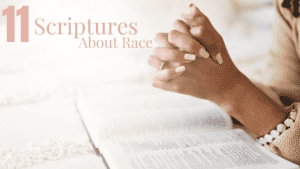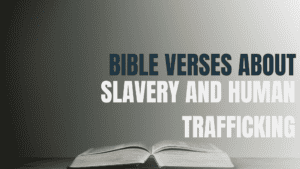I saw her out of the corner of my eye as I answered questions following a pro-life conversation about abortion at a high school. She stood to the side looking nervous, her face tense and fingers interlaced.
After a brief introduction, she looked at me with tear-glazed eyes and said quietly, “I believe everything you said about being pro-life. But if I say any of those things, all of the girls I know will accuse me of being a traitor to women. What do I do?”
With a heavy heart held up by Gospel strings of hope, I took her hand, and we began to talk.
Conversations with grace
These days the pressure to agree with popular, “pro-choice” ideas makes it seem impossible to have a meaningful conversation about abortion. But it’s not. If you grasp the bigger picture of what’s going on, you can graciously offer clarity, understanding of the pro-life view and the hope of the Gospel. It really is possible.
Some background on abortion
Abortion has been a controversial issue for a very long time.
It became legal in all 50 states in 1973 in the historic Supreme Court decision, Roe v. Wade. The Roe decision allows for abortion for any reason early in a pregnancy but restricts abortion later in pregnancy unless the life or health of the mother is at risk. A sister case, Doe v. Bolton defined a mother’s “health” so broadly that it made abortion legal at any point in the pregnancy for virtually any reason.
States have begun taking sides on the issue. If Roe v. Wade were to be overturned, the decision-making power on abortion would return to the states. That means individuals would have a better opportunity to influence pro-life changes closer to home.

Check out Brio
For cultural insights like this and so much more, click and discover Brio magazine for teen girls.
What makes pro-life conversations so hard?
Right now, unfortunately, the words people use to talk about abortion only deepen the confusion. In fact, it’s becoming rare to hear the word abortion at all. You’re much more likely to hear things like women’s healthcare, reproductive freedom and that women should have the right to make choices regarding their own bodies.
Abortion has become so normal that, according to the Guttmacher Institute, one out of every four women in the U.S. has an abortion by the age of 45. That means everywhere you go you probably encounter women and men affected by this issue.
Plus the way people talk about abortion makes it seem like it’s simply an issue of preference—a “true for you but not for me” kind of thing. We would never say the same thing about other moral issues like human trafficking or racism. But our culture seems committed to framing abortion as a matter of “choice” for women. If a woman gets pregnant and doesn’t want to be, our culture promotes the idea that she ought to be able to choose abortion.
But what is the nature of this particular choice?
Who are the preborn?
To have a real conversation about what it means to be pro-life, especially in light of the support for abortion, our first goal needs to be clarity. So we have to zero in like a laser on an important question that most people overlook: “Who are the preborn?”
- Think of the reasons that are often given for abortion: “It’s an issue of privacy that should remain between a woman and her doctor.”
- “She can’t afford to feed another child.”
- “Why would you make an unwanted child be born, only to face hardship?”
- “If a baby has a disability, abortion keeps him or her from suffering.”
- “Women should be allowed to pursue their education or their dreams without an unplanned pregnancy standing in the way.”
Notice that all of those reasons deal with something important. No one would deny the seriousness of privacy, poverty, suffering or hardships. But each of these reasons assumes that the preborn are not human beings.
Think about it. If the conversation were about a 2-year-old, and we used any of those reasons to justify terminating him or her, the person talking to us would call us crazy! Everyone agrees that toddlers are human regardless of being expensive, unwanted, disabled or standing in the way of something we want.
“Who are the preborn?” is asking whether the preborn are just as human as toddlers. And the answer is yes!
Conversations with science
Once we’ve brought the focus back to that central question, we can offer an answer. Scripture has plenty to say about the sanctity of life, but the science of embryology (em-bree-ology), a field of study dedicated to the preborn, provides the answer. According to science, a living, distinct, whole human being comes into being from the moment of fertilization. The preborn are alive because they do all the things any organism does, including growing and turning food into energy. Even though an embryo (em-bree-oh), the name given to a human being during the first eight weeks of life, is attached to her mother, she is not part of the mother’s body. Each embryo has her own unique genetic code.
Each preborn child is also a whole human being. She isn’t just part of an organism like the cells I could scratch from the skin of my arm. Bodily cells work together in a coordinated way to make sure that you, the organism, are operating as a whole. Even at the single-cell stage, an embryo’s parts work together to make sure she is surviving and thriving.
Yet you’ll often hear an embryo described as nothing more than “a clump of cells” or “a mass of tissue,” as if you could add some more parts until you have the final “product,” a baby. But a preborn person does something remarkable. She drives her own development from within. That means that you didn’t come from an embryo; you once were an embryo. You came into being all at once and have matured to this point. And you are still developing.
Can a human not be a person?
Some people will agree with the science that tells us the preborn are human, but they’ll deny that the preborn are individuals who deserve to have rights. What they’re really saying is that some human beings are more valuable than others. So the next important question is, “What makes human beings valuable?”
Philosopher Stephen Schwarz points out that the only differences between the preborn and us are size, development, environment, and degree of dependency. Since when does a human being’s size determine his or her worth? If that were true, it would mean that smaller human beings have less value than larger ones. Based on this view, girls, who are often smaller than guys, would be less valuable (and, as a consequence, have fewer rights than guys). They would not be equals.
Likewise, if we base our value on things like how mature we are, where we live or how much we depend on someone or something else, we run into major problems. All of those traits are different for every human being.
So what makes human beings valuable? The answer is simple: being human. Human beings are valuable because they are human.
Good news for God’s image-bearers
When God made the first humans, He made them in His own image, Imago Dei (Genesis 1:26-27), and said that they were “very good” (Genesis 1:31). That means God gave each of us worth, and it can’t be taken—or even given—away. That’s truly good news in a world that, every day, offers a million and one false answers to the question of human value. Whether it’s appearance or intelligence, athletic performance, or social media status, the things we do as humans have no bearing on our value. Each one of us is a precious image-bearer, reflecting our wonderful Maker to the rest of the world in unique and beautiful ways.
If you recognize and believe in where your true value lies, you’ll be able to have conversations about abortion—with grace. If you’re willing to walk confidently in your image-bearer status, you’ll find the courage to speak the truth in love for those who can’t speak for themselves or who don’t recognize their own amazing worth. That includes not only preborn children but also the women, men and families who suffer because of the tragedy of abortion and its effects.
You can use the Bible, science and philosophy to talk about the pro-life view, but this belief finds its home in the Imago Dei, God’s image. We can speak freely against abortion in a gracious way because every single human being, from the moment they come into existence, is precious and worthy of respect. The Gospel offers a clear message about what it means to be human and valuable. And Jesus’ death, resurrection and gift of eternal life bring healing to the hurting and bright hope this side of heaven in which all life is treasured.
Looking for ways to make a difference?
- Find out more. Pro-Life and Pro-Choice: What Does it Mean?
- Educate yourself about the abortion issue. What’s going on in your community, state, country and the world?
- Pray for the end of abortion.
- Research where political candidates stand on pro-life issues.
- Speak up to Defend Life
- Find out more and volunteer at your local pregnancy center in your area.



















